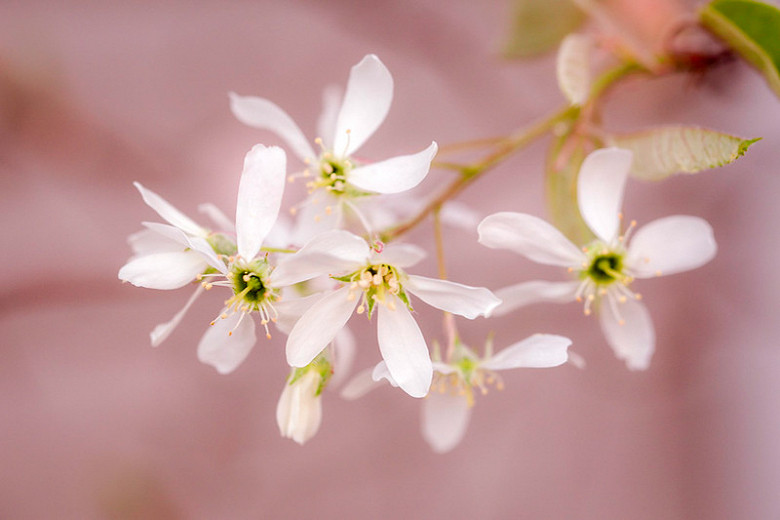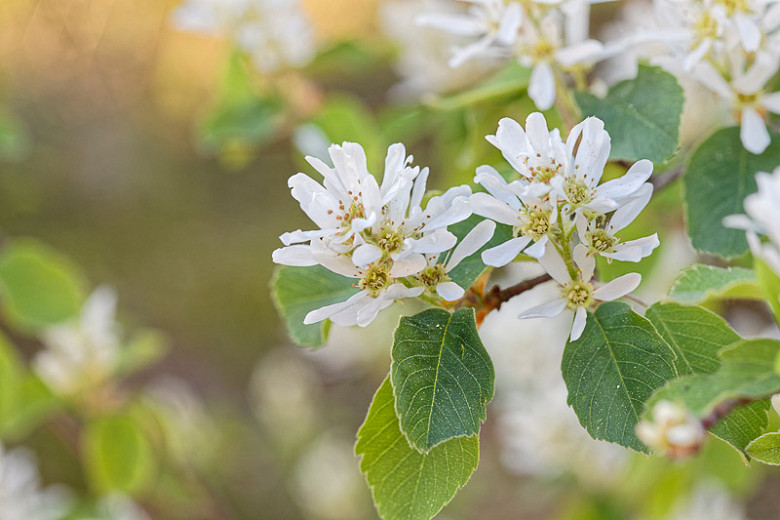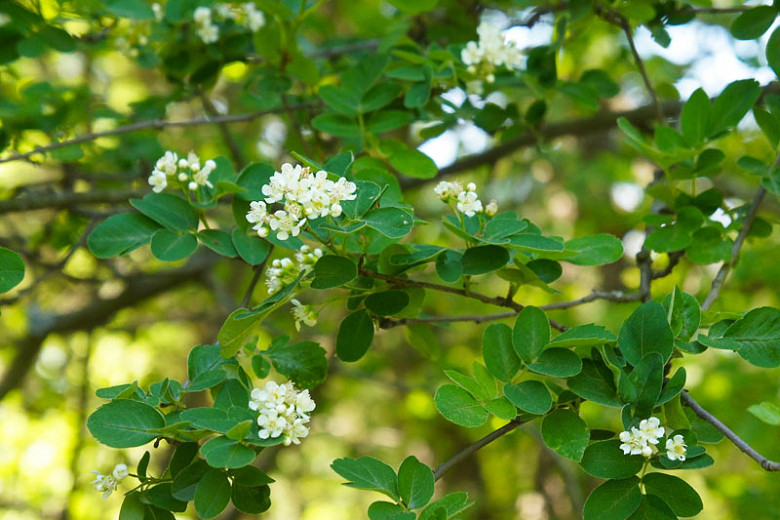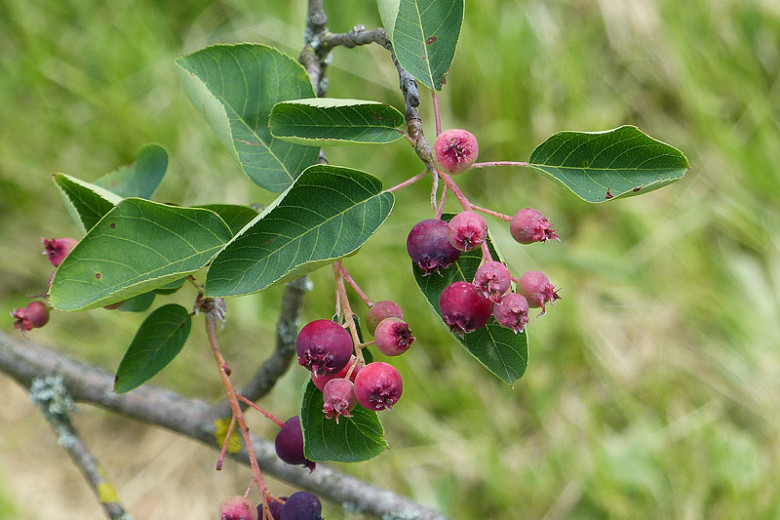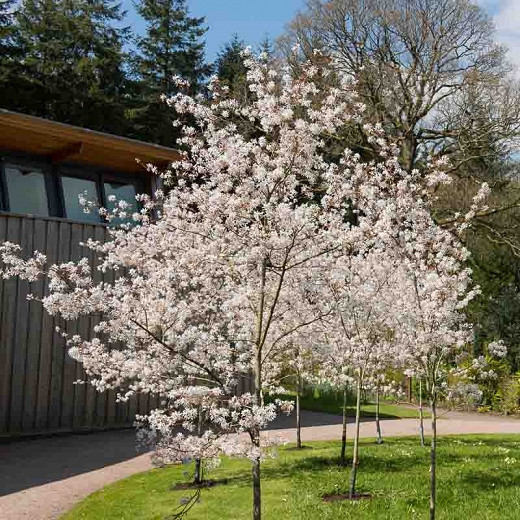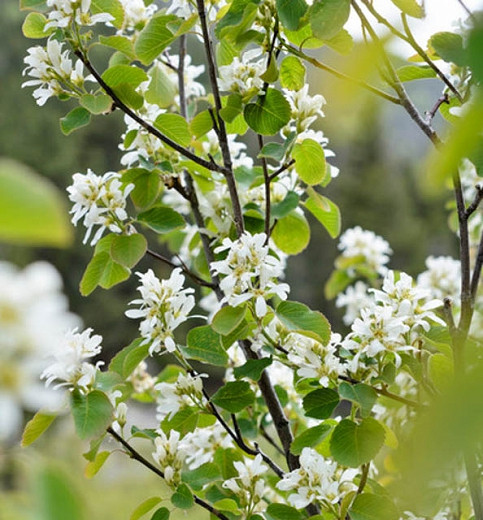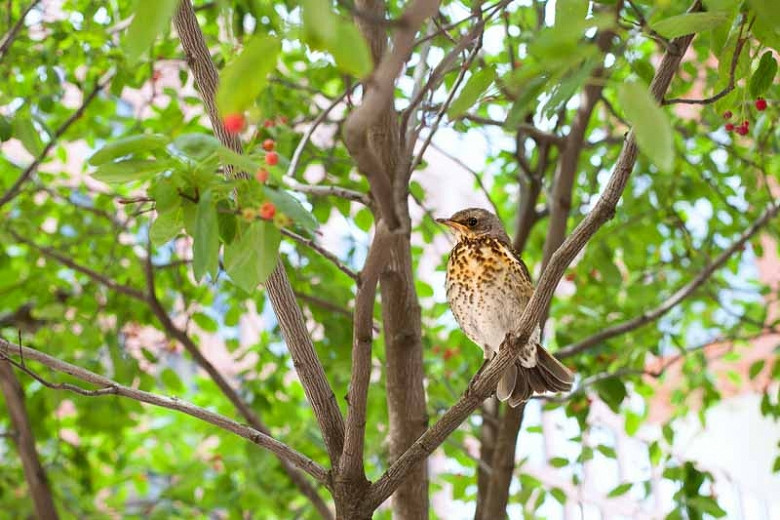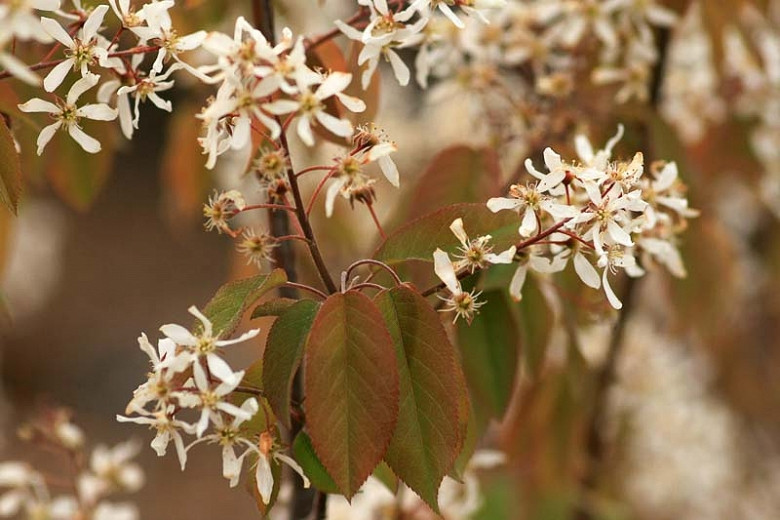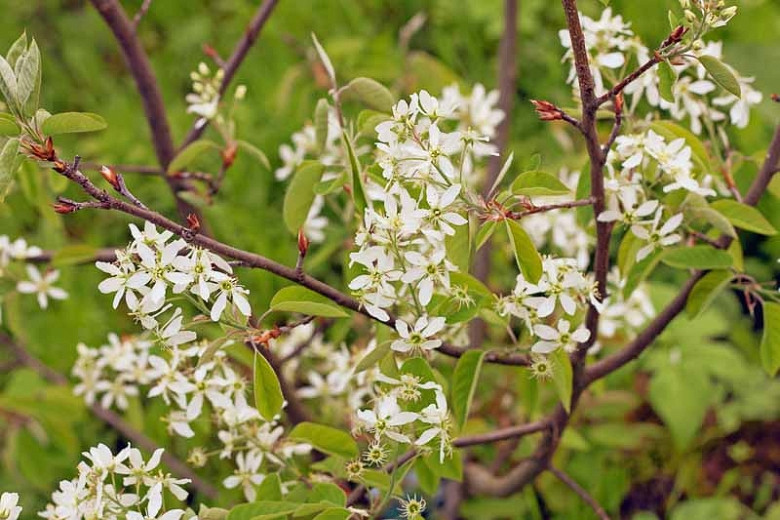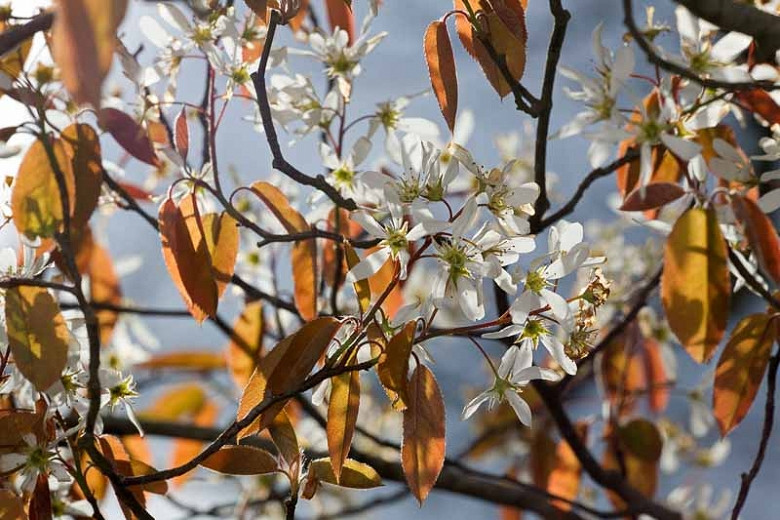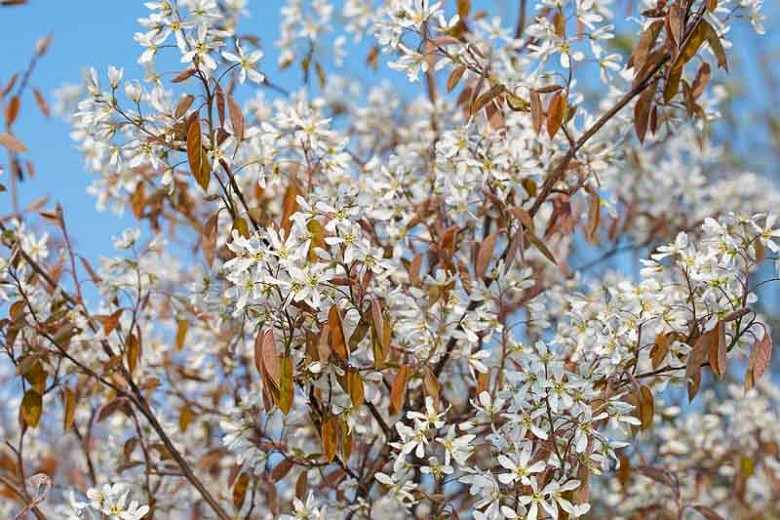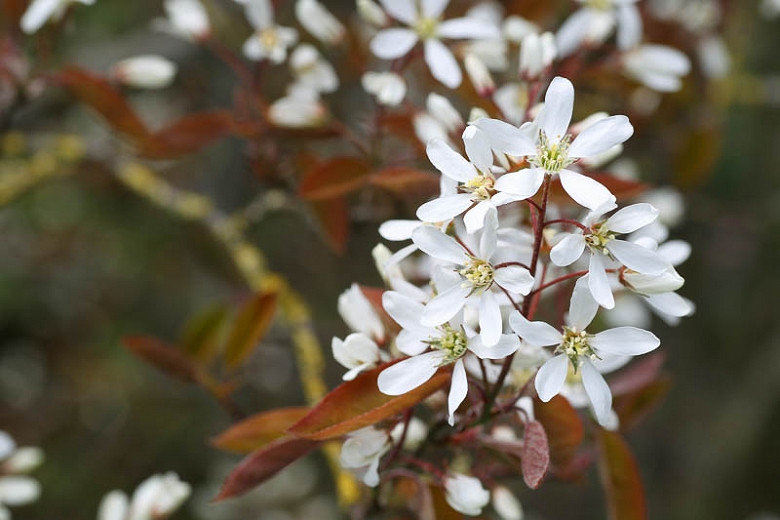Amelanchier stolonifera (Running Serviceberry)
Providing multi-season interest, Amelanchier stolonifera (Running Serviceberry) is a deciduous, early-flowering, stoloniferous shrub boasting showy upright clusters of 5-petaled, white flowers in spring, as the leaves are expanding. Attractive to bees and other pollinators, they are followed by abundant, edible, dark purple berries in summer. Resembling blueberries, they are often used in pies and are appreciated by both birds and humans. The foliage of finely toothed, oval to rounded, medium to dark green leaves, 1-3 in. long (2-7 cm), turns to attractive shades of yellow, orange, and red in the fall. Running Serviceberry suckers and spreads to form thickets. It is best in shrub borders, or in woodland, naturalized, or native plant gardens.
- Grows up to 4-5 ft. tall and wide (120-150 cm)
- Performs best in full sun to part shade in dry to mesic, acidic, well-drained soils. Best berry production and fall color occur in full sun. Tolerates poor soil and a wide range of soil conditions. Drought tolerant once established.
- Perfect as a specimen plant, hedges, and screens, or for foundation plantings. Makes an excellent windbreak when planted fairly close together, so the branches can intertwine to form a living fence.
- No serious pest and disease issues, but keep an eye out for rust, leaf spot, fire blight, powdery mildew, sawfly, leaf miner, borers, and scale.
- Propagate by seed or by sucker division.
- Native to eastern North America.
Requirements
| Hardiness | 4 – 8 |
|---|---|
| Plant Type | Shrubs |
| Plant Family | Amelanchier – Serviceberries |
| Exposure | Full Sun, Partial Sun |
| Season of Interest | Spring (Mid,Late)Summer (Early,Mid,Late)Fall |
| Height | 4' – 5' (120cm – 150cm) |
| Spread | 4' – 5' (120cm – 150cm) |
| Spacing | 48″ – 60″ (120cm – 150cm) |
| Water Needs | Low, Average |
| Maintenance | Low |
| Soil Type | Clay, Loam, Sand |
| Soil pH | Acid, Neutral |
| Soil Drainage | Moist but Well-Drained, Well-Drained |
| Characteristics | Showy, Fruit & Berries |
| Native Plants | United States, Midwest, Illinois, Indiana, Iowa, Michigan, Minnesota, Missouri, North Dakota, Ohio, South Dakota, Wisconsin, Northeast, Connecticut, Maine, Massachusetts, Maryland, New Hampshire, New Jersey, New York, Pennsylvania, Rhode Island, Vermont, Southeast, Alabama, Georgia, Kentucky, North Carolina, South Carolina, Tennessee, Virginia, West Virginia |
| Tolerance | Drought, Dry Soil |
| Attracts | Bees, Birds |
| Garden Uses | Beds and Borders, Hedges and Screens |
| Garden Styles | Informal and Cottage, Prairie and Meadow |
